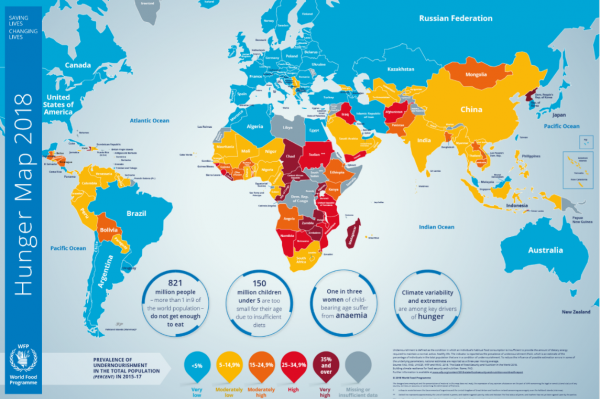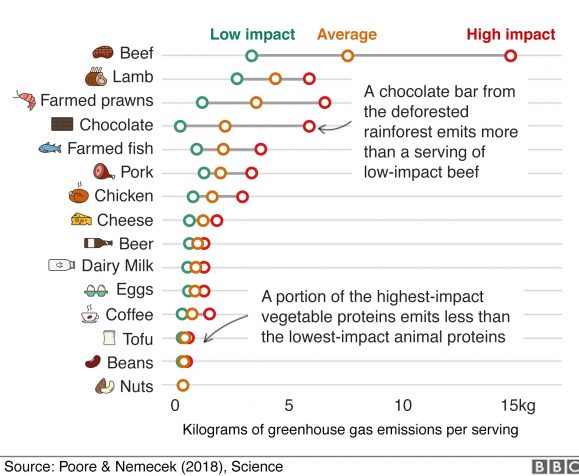What is World Food Day?
World Food Day is a day of action organised by the United Nations (UN) aiming to spread awareness of how to tackle global hunger. Every year on 16th October people from 150 countries unite and pledge a commitment to work towards achieving a Zero Hunger lifestyle. Zero Hunger goes beyond hunger; it means everyone across the world has enough nutritious food to live. We need to take action now to ensure that healthy diets are available for us all – our actions are our future.

Who is suffering?
The undernourished
The malnourished
You, me and everyone
The undernourished – where is all the food?
An unbelievable 795 million people in the world do not have enough food to lead a healthy active life – that is the equivalent of one in every nine people living on this earth. A shocking two thirds of these starving people are living in Asia. What is even more horrifying is that almost five million of these people are children under the age of five.
The malnourished – we are what we eat.
Malnourishment, where people aren’t getting enough nutrients in their diets, is causing a worrying 45% of deaths worldwide. A huge 672 million people are suffering from obesity each year and 1.3 billion people are overweight, leading to many diseases and increasing death rates globally. These facts highlight the urgency of education in nutrition across all nations.
Everyone – how does it affect the environment?
Certain foods have a significant impact upon climate change. Researchers found that the environmental impact of different foods varies hugely. Their findings showed that meat and other animal products are responsible for more than half of food-related greenhouse gas emissions. Of all the products analysed in the study, beef and lamb were found to have by far the most damaging effect on the environment.
"What we eat is one of the most powerful drivers behind most of the world's major environmental issues, whether it's climate change or biodiversity loss," study researcher Joseph Poore told BBC News. "Changing your diet can make a big difference to your personal environmental footprint, from saving water to reducing pollution and the loss of forests," he said. "It reduces the amount of land required to produce your food by about 75% - that's a huge reduction, particularly if you scale that up globally," Poore explained.

Healthy diets for a #zerohunger world
- Eat enough, safe, nutritious and diverse foods to lead an active life and reduce the risk of disease.
- Add fruits, vegetables, legumes (e.g. lentils, beans), nuts, seeds and whole grains.
- Limit the intake of foods that are high in fats (especially saturated fats), sugar and salt.
- Eating less meat and dairy products.
- All the above should be complemented with regular physical activity.
- Consider the environmental impact of the foods we eat.
- Limit the consumption of foods that require a lot of water.
Stop wasting food!
It is estimated that one third of all food produced for human consumption is thrown away each year. 1.3 billion tonnes of fruit, vegetables, meat, seafood, grains being disposed of on an annual basis due to being spoiled, getting lost or thrown away by hotels, restaurants, supermarkets, schools and homes. When we waste food, we waste energy and water that it takes to grow, transport and package it. After throwing food away it releases harmful greenhouse gases such as methane into the atmosphere which is more potent than CO2. In total, 11% of greenhouse gases come from food waste, so this can be significantly reduced if we make a conscious effort to stop wasting food. Our mission should be to use the food that we have already produced more efficiently.
What is the solution?
Supermarkets today have now teamed up with charities as an attempt to reduce the amount of food that is wasted in their stores – they save good food from going to waste and redistribute it to people, to charities and community groups who turn it into meals for vulnerable people.
“I believe we must all work together to ensure that everyone, everywhere has access to food, while taking care of our planet's limited resources.”
Qu Dongyu, Director-General, FAO
At home we can reduce our food waste by freezing it, shopping smarter buying foods with less packaging, we can all take these small steps to decrease our carbon footprint. It is crucial that we spread this knowledge of food waste with friends in our communities so we can all work as a team to live more mindfully in order to protect our environment and combat climate change.
How can we help?
Follow the “Think. Eat. Save.” motto as a way to reduce food waste:
- Think about what you’re buying, plan meals and shop smart.
- Eat mindfully. Are your eyes too big for your stomach?
- Save food, save money, save the environment.
Eradicating hunger worldwide requires global determination and action from us as individuals, our communities and the businesses around us. By reducing our food waste, buying less packaging and eating environmentally friendly and nutritious foods will all help us to achieve our goal of ending world hunger.
How did we celebrate it in Hiba?
Children at Hiba Nursery enjoyed learning about World Food Day and its deeper meaning behind the celebration. Children were educated about how we need to work together to end global hunger and send a strong message to countries worldwide that we can become a Zero Hunger Generation.

We also discovered various international dishes as children presented their food photos from countries they had been to. We learned how to cook some intercontinental meals as a French and Asian chef visited our school to show each class how to make pizza and sushi.


The children were questioned about where the dishes came from and even some EY1 children were responding with countries which was incredible to see!

Some children who volunteered to help the chefs were given the opportunity to make these signature dishes and the rest of us in the audience could see the presentation.

It was a fun filled day and children enjoyed learning about food from around the world!
References:
https://www.un.org/sustainabledevelopment/hunger/
https://friendsoftheearth.uk/food-waste
http://www.fao.org/world-food-day/my-actions/en/
https://www.worldwildlife.org/stories/fight-climate-change-by-preventing-food-waste
https://www.wincalendar.com/World-Food-Day
http://www.fao.org/3/ca5268en/ca5268en.pdf
https://www.bbc.co.uk/news/science-environment-46459714







